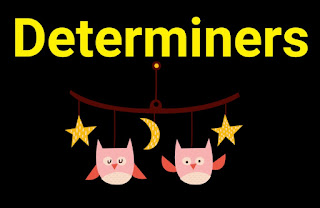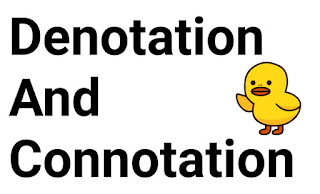DETERMINERS
Determiners are words that usually come at the beginning of a noun phrase and tell us something more about the noun and help to qualify (define or identify) it. For example, in the sentence this is my coat, the word my is a determiner. It identifies the coat as the one that belongs to me.
Exercise
Look at the underlined determiners in the sentences below and decide what information they give about the noun or how they identify it. For example, the = a specific car, a car we already know about.
1. Is that the car you want to buy?
2. Do you want this book or that one?
3. I've got two brothers but no sisters.
4. I don't buy many new clothes because I don't have much money.
5. Both my brothers work in the city but neither is happy.
6. There isn't really enough time to discuss all the possibilities.
TYPES OF DETERMINERS
Article
Used to identify a specific noun, e.g. one we already know about (definite article), or a non-specific noun (indefinite article). There are many rules for using articles that you will be able to find in a good English grammar.
Examples:
the car (definite article)
a car (indefinite article)
cars (zero article)
Possessive adjective
Used to identify who possesses or own the noun.
Examples: my coat, your coat, his, her, its, our, their
Demonstrative adjective
Used to identify how close or distant the noun is to the speaker.
Examples:
this book / these books (generally near),
that book / those books (generally distant)
Quantifier
Used to identify how much or how many of something, how complete something is or if something is sufficient.
Some quantifiers are used with either countable or uncountable nouns. For example, many (countable) and much (uncountable).
Some are used with both countable and uncountable nouns (e.g. no sisters, no sugar).
Quantifiers may be made of more than one word (e.g. a lot of).
There are a number of other examples of quantifiers that you will be able to find in good English grammar.
Examples:
two brothers / no sisters (number)
many clothes / much money (number of amount)
no sisters / no sugar (number of amount)
both brothers / neither brother (number)
enough time (sufficient)
all (completeness)



Comments
Post a Comment